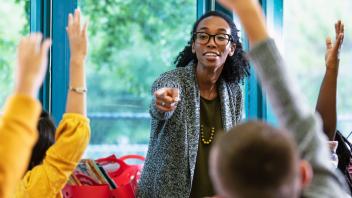Teacher question:
I am confused. You claim that independent reading has almost no benefit, but another article I just read says, “In one of the most extensive studies of independent reading yet conducted, Anderson, Wilson, and Fielding (1988) investigated a broad array of activities and their relationship to reading achievement and growth in reading. They found that the amount of time students spent in independent reading was the best predictor of reading achievement and also the best predictor of the amount of gain in reading achievement made by students between second and fifth grade.” Which is correct?
Shanahan’s snappy response:
Oh, that’s an easy question. My ideas are correct, of course.
Let me explain. There are different kinds of research. Here the two pertinent kinds of investigation are correlational studies and experimental studies. In the former, the researcher tries to see if there is any relationship between two variables, in this case the relationship of interest is between amount of reading and amount of student literacy learning. In the experimental studies, on the other hand, someone tries to determine if one variable “causes” another or influences another.
Here’s how it plays out in this case. The Anderson, et al., study that you cited above is a correlational study. They tested students’ reading ability and they measured (using diaries) how much reading students did on their own. Despite the quote, they didn’t actually measure how much learning the students were doing (they estimated this based on the original reading scores). In any event, the correlation was quite high… which means the kids who were reading the most had the highest reading scores (and, perhaps, the biggest learning gains).
That may seem like convincing evidence, but one problem with correlations is that you can’t be certain of their direction. What I mean by that is that no matter how strong a relationship, the analysis can’t reveal whether it is higher reading practice that leads to higher reading achievement or whether it is just that the best readers read more than the other kids.
But even if the direction of the relationship were clear, you wouldn’t be sure about what was causing it. Maybe the kids with the highest achievement also have the best-educated parents — parents who expect them to read at home. That would mean that parent’s level of education was the determining factor for both learning to read and choosing to read. (Thus, if you made everyone read a lot, it wouldn’t necessarily have the effect you were hoping for because you wouldn’t have those educated parents in all the homes.)
In contrast, experimental studies allow you to attribute causation to a particular variable. An experiment may randomly assign students to a treatment group that would get DEAR (Drop Everything and Read) time during their school day, and to a control group that would not be required to do this extra reading. If the DEAR group learned more over the period of the study we would know that the gains were due to the extra reading time since the other variables would have been controlled or randomized.
There is a substantial body of correlational studies showing that better readers read more than other kids; just as that article that you quoted indicated. But the experimental studies of this problem reveal how hard it is to encourage students to read enough to raise their reading achievement (Kim, 2007; NICHD, 2000; Yoon & Won, 2001). In many studies encouraging kids to read more, through actions like independent reading time during the school day, have no impact at all, and the average impact across studies is tiny (so tiny it is of questionable value).
Why is this the case? We don’t really know, but here are some possible explanations. Perhaps the various interventions (DEAR time, SSR time, book floods, etc.) do not actually get kids to read more than they would without the interventions; a basic flaw in this research is that it rarely monitors how much of an increase in reading, if any, was instigated by the intervention. Or maybe these approaches get kids to read more, but not enough to make a difference in learning. Or maybe this kind of reading improves something else like oral vocabulary, world knowledge, or love of reading. Studies of reading to younger children show that those kids end up knowing more vocabulary, so that relationship seems possible, while studies of encouraging reading have usually not found any relationship to attitude. Still another possibility is that independent reading is terrific, but when compared with the reading that kids do under a teacher’s supervision during instruction, it doesn’t come out so well (put it up against skateboarding or playing video games and it would do much better).
Final word: I don’t actually say “independent reading has almost no benefit.” My point is that independent reading time during the school day has little or no impact on reading achievement, so I wouldn’t make setting aside such time a priority in my classroom. Nevertheless, I think independent reading is great and I encourage kids to be independent readers — which means reading on one’s own, not when required to by the teacher. Use your school day to teach kids to read, and then when teachers are not available to the kids let’s hope they will choose to read on their own, too (independently).

